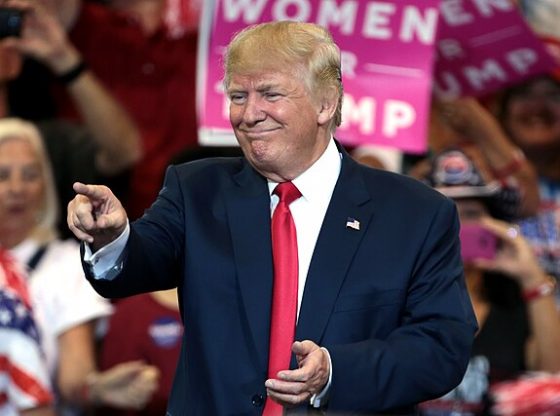Four criminal indictments, a mug shot and a weeks-long trial in Manhattan that ended in a conviction haven’t managed to stop former President Donald Trump from campaigning for a second term.
On the contrary, the daunting 91 felony counts Trump faced just last year across two federal and two state cases are slowly being whittled down as judges weigh pretrial issues. Trump’s attorneys’ efforts to stall the cases have largely succeeded: Less than two months from election day, pending appeals have shut down the possibility of any real progress before November.
“It’s remarkable that none of them have had any significant impact,” criminal defense attorney and legal analyst Philip Holloway told the Daily Caller News Foundation. “In the end, it looks like Trump is going to do very, very well in all of these cases, especially considering how many of them there were.”
Democratic Manhattan District Attorney Alvin Bragg, the first to bring his indictment in April 2023, was also the only prosecutor whose case has actually gone to trial and secured a conviction. A jury found Trump guilty on all 34 counts of falsifying business records related to repaying his former attorney Michael Cohen for a nondisclosure agreement with porn star Stormy Daniels.
While Trump was set to be sentenced just days before the Republican National Convention in July — prompting conversations about how he could still accept the nomination behind bars — the Supreme Court delivered a ruling July 1 finding former presidents immune from prosecution for official acts taken in office, forcing Bragg and every prosecutor to reckon with its application to their case.
Judge Juan Merchan agreed to delay the sentencing until Sept. 18 in light of the ruling. He again agreed to postpone sentencing on Sept. 6, this time pushing it back until Nov. 26.
“The imposition of sentence will be adjourned to avoid any appearance—however unwarranted—that the proceeding has been affected by or seeks to affect the approaching Presidential election in which the Defendant is a candidate,” Merchan wrote.Gage Skidmore from Peoria, AZ, United States of America_
Holloway noted the verdict could still “very well be overturned on appeal.”
The Supreme Court ruling that threw off Merchan’s timeline also awakened Trump’s federal election interference case in Washington, D.C. from a months-long hold that resulted from his appeal, while putting a trial even further out of reach.
Judge Tanya Chutkan rejected Trump’s effort to dismiss the case over presidential immunity in early December. Smith, who unsuccessfully tried to speed up the appeal process by asking the Supreme Court to issue a ruling before the appeals court, was forced to wait months to see any progress.
Even though the case is now back in Chutkan’s hands, the schedule she set guarantees no trial will be held before the election, though it does allow Smith to potentially make unseen evidence public in a brief on presidential immunity at the end of September.
Despite her insistence that the case must move along no matter the electoral calendar, Chutkan acknowledged it’s hardly possible to think about a trial date with the many looming appeals.
“I’m risking reversal no matter what I do,” Chutkan acknowledged during a Sept. 5 hearing.
Along with the presidential immunity issue, Chutkan will also have to grapple with the argument that prompted Judge Aileen Cannon to entirely dismiss Trump’s federal classified documents case: Smith’s unlawful appointment.
In July, Cannon ruled that the case must be dismissed because Smith’s appointment violated the Appointments and Appropriations clauses of the Constitution. Smith is appealing the ruling, but that process will also take time.
In Georgia, the case against Trump began crumbling under a different kind of pressure: Fulton County District Attorney Fani Willis’ “improper” relationship with the special prosecutor she appointed, Nathan Wade.
Their relationship became the center of national attention after one co-defendant filed a motion to disqualify Willis, alleging she gained financially from appointing Wade through vacations the pair took together. A multi-day hearing resulted in the judge questioning whether they testified truthfully about the timing of their relationship, though he allowed Willis to remain on the condition that Wade step down.
The defendants appealed, and the case is now on hold pending the outcome of that ruling.
The 13 charges Trump initially faced have also been reduced to eight. Judge Scott McAfee tossed three charges against him in March and another two on Thursday.
‘Largest Jury Verdict In History’
After Chutkan released a schedule confirming there would be no trial before November, George Washington University law professor Jonathan Turley said on X that the emphasis is now on the election.
“That could make this election the largest jury verdict in history since a Trump victory would make any trial unlikely,” Turley wrote. “Jack Smith may never see a jury in the case.”
A Trump loss means he “will likely face years of trials and appeals before the legal issues will be finally determined,” according to Syracuse University law professor Gregory Germain.
If Trump wins, the federal cases would almost certainly be tossed, either by Trump issuing a self-pardon or by his DOJ appointees dismissing it, Germain explains. However, he could not pardon himself from the state-level cases.
“It is not clear whether a state prison sentence could be implemented against a sitting president, or how it could be implemented, or whether some sort of federal supremacy would prevent the states from interfering with the activities of an elected president,” Germain wrote. “Another constitutional crisis is likely if either of the state criminal cases results in a prison sentence.”
Holloway told the DCNF judges may not even proceed with a criminal trial against a sitting president or President Elect.
“At a minimum, they would be stalled, but more likely than not, they would be dead in the water,” he said.
Featured Image Credit: Gage Skidmore from Peoria, AZ, United States of America












